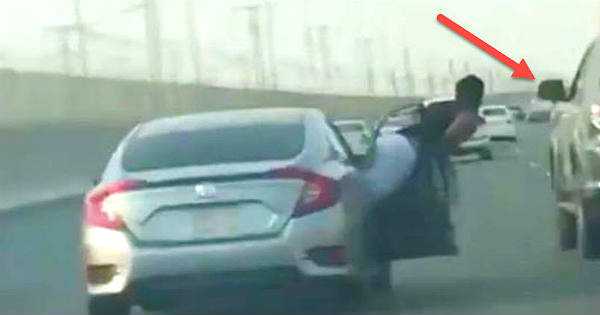Have you ever found yourself honking your horn or shouting at another driver in traffic? Road rage, a 90s term coined by a Los Angeles news station, is used to describe a driver’s aggressive or angry behavior towards the drivers they share the road with. But is road rage illegal in Texas? The answer is unfortunately no, even though recent data alludes that it should be. Texas in 2022 had 2,510 road rage-related accidents, with San Antonio and Houston being two of the most popular crash areas. In this blog post, we’ll take a closer look at how Texas law handles road rage as well as the differences between aggressive and reckless driving.

Why Isn`t Road Rage Illegal?
Although road rage is a dangerous behavior that puts everyone on the road at risk, it is still only an emotion, which is not a legal offense alone. The actions taken by the enraged person during their instance of road rage may constitute a crime, but not the rage itself. Texas law instead acknowledges these rage-induced actions by prioritizing aggressive and reckless driving statutes.
Aggressive vs. Reckless Driving
Aggressive driving and reckless driving are actually two different things.
While Texas law doesn`t specifically mention road rage, it does acknowledge and dissect angry driving habits. Texas officially recognizes aggressive driving and reckless driving in their law system, which often overlaps with the theme of road rage.
Aggressive Driving
Aggressive driving is a traffic offense that involves committing multiple violations of traffic laws in a way that endangers other drivers or property.
Some examples of aggressive driving include:
- Firing a gun or shooting at other drivers
- Throwing objects at other vehicles
- Using your vehicle to harm others
- Intentionally blocking cars attempting to lane switch
- Attempting to run cars off the road
- Causing physical damage to another person`s car
The severity of punishment for aggressive driving is higher than with reckless driving since it`s categorized as a criminal offense.
Reckless Driving
Texas law recognizes reckless driving as a misdemeanor and defines it as “willful or wanton disregard for the safety of persons or property.” Penalties for reckless driving include up to 30 days of jail time, the revocation of one`s driver`s license, fines up to $200, and community service.
Some things that count as reckless driving are:
- Tailgating: Following too closely behind another vehicle, which can be intimidating and increase the risk of a collision.
- Running red lights or stop signs
- Texting or other distracting activities
- Speeding
- Racing
- Yelling at other drivers or making inappropriate gestures
It is important to note that the difference between Aggressive and reckless driving lies in their intent. If A driver with road rage is going out of their way to cause harm to another person or property, it is aggressive. In contrast, if their behavior is unsafe but they are not going out of their way to specifically harm someone, it is reckless.
Even though Texas has more fatal road rage shootings than any other state, the emotion of road rage itself is not inherently illegal. Thankfully though, there are statutes that prohibit aggressive and reckless driving. If road rage leads to other law violations, such as assault or leaving the scene of an accident, the consequences can be severe.

